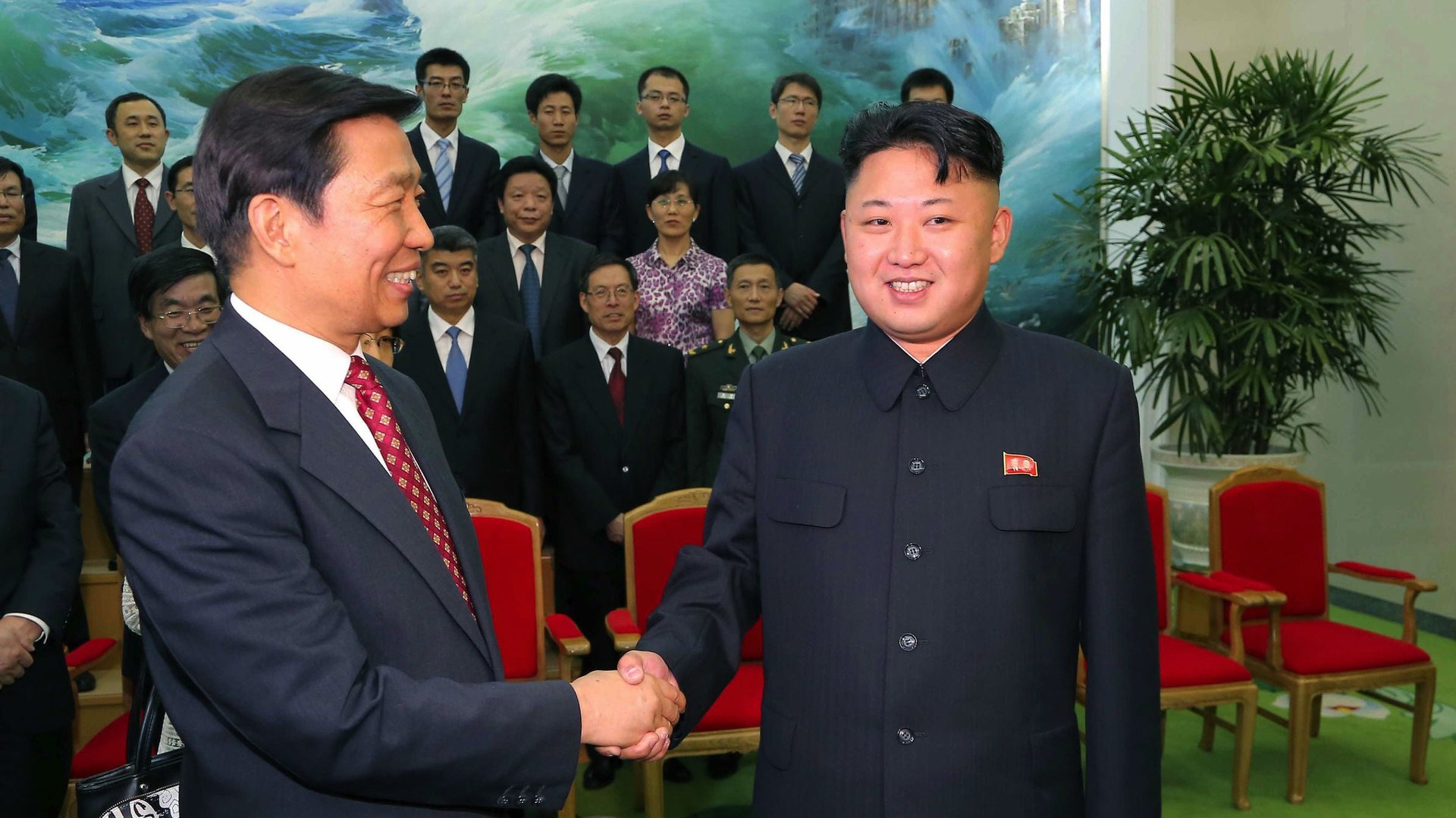Doing business with North Korea is proving impossible, even for China
For a long time, North Korea and China had a decent working relationship. China would provide its communist neighbor with food supplies, oil, goods, arms, and investment, all while opposing international sanctions on the country over its nuclear program. In return, North Korea exports natural resources to China, restrains refugees from surging over the border, and frustrates China’s rivals, especially Japan and the United States.


For a long time, North Korea and China had a decent working relationship. China would provide its communist neighbor with food supplies, oil, goods, arms, and investment, all while opposing international sanctions on the country over its nuclear program. In return, North Korea exports natural resources to China, restrains refugees from surging over the border, and frustrates China’s rivals, especially Japan and the United States.
All that began to change under the rule of North Korea’s Kim Jong-un, and the two long-time allies increasingly find themselves at odds. This is evident on the diplomatic front—China now supports United Nations sanctions on Pyongyang—but also on the ground. A set of case studies of four Chinese firms doing business in North Korea, analyzed by John Langdon, a student at the Johns Hopkins School of Advanced International Studies, shows how Chinese firms are finding it increasingly impossible to work with their counterparts across the Yalu River.
Constant demands for bribes, changing contracts, poor infrastructure, and heavy-handed security measures proved too much for the Chinese business partners assessed in the study. Two of the ventures were terminated under orders from the Chinese government and one collapsed on its own. A Chinese manufacturer of hydroelectric generators, which had been doing business in North Korea since 1985, complained that its engineers were carted around in windowless trucks and restricted from interacting with North Koreans. The Chinese staff also found listening devices in their residences.
China’s economic relationship with North Korea has been especially under strain since last year. Following Pyongyang’s third nuclear test in February, trade between the two countries fell 6% during the first six months of 2013 from the year before. That matters given that almost 90% (paywall) of North Korea’s overseas trade is with China. And as we reported, Bank of China closed the account of North Korea’s Foreign Trade Bank, hurting the country’s access to foreign reservers. This year, North Korea’s Kim Jong-un ordered the execution of his uncle, Jang Song-thaek, an official who was considered to be well connected in Beijing.
China is still trying to maintain business ties and support the North Korean economy. Work visas granted to North Koreans increased 17% last year, and China plans to open a high-speed train line to the North Korean border next year. But Chinese and North Koreans actually working together? Not so much.